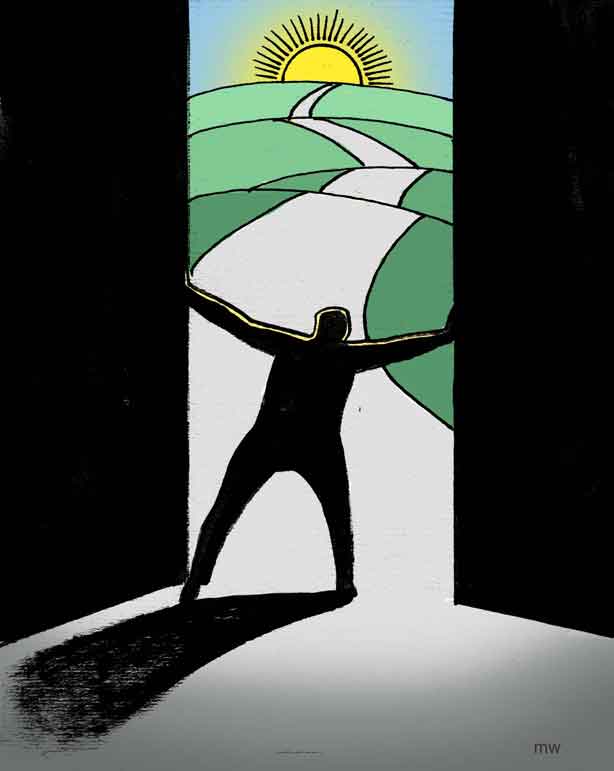
And while you're doing that, maybe you should ponder that this is a great time to be alive.
I know, I know. The pandemic is bad. The economy, while rebounding, is still a mess for most people. Race relations, riots, left-wing mobs, right-wing militias, polarization — I get it. We have problems. I also understand that many people think that if their guy doesn't win the presidency, we're doomed.
But take a deep breath, zoom out from your Twitter and Facebook feeds or your TV screen, and look at the big picture. I mean the really big picture.
A great lens for getting that picture into focus is "Ten Global Trends Every Smart Person Should Know" by Ronald Bailey and Marion L. Tupy. For brevity's sake, I won't cite all of their sources, but the skeptical reader should know that the authors draw from uncontroversial, mainstream sources such as the U.N., the World Bank, the Bureau of Labor Statistics and peer-reviewed academic studies.
Let's start globally.
For years, it was popular on the left to decry the costs of globalization. That complaint is more popular on the right these days. From either perspective, globalization — the melding of markets around the world through relaxed trade and technological innovation — has definitely created winners and losers. But if you're scoring on a global scale, the wins outweigh and outnumber the losses by orders of magnitude.
Pick almost any starting point over the last half-century. Extreme poverty has been crushed and may be on its way to disappearing in the next decade or two. In 1990, roughly 1.9 billion people lived in extreme poverty (defined as making less than $1.90 per day). Since then, world population has grown from 5.28 billion to 7.8 billion, while the number of people living in extreme poverty has dropped to 650 million and continues to fall.
That's because the world has been getting richer — the whole world, not just the top 1 percent. From 1900 to 2016, global GDP per capita grew by about 621 percent. Even global inequality — the gap between rich and poor countries — has started to decline appreciably over the last two decades.
Wealth doesn't solve everything for individuals or societies, but it helps a lot. Which is why literacy, infant mortality, hunger, work-related deaths and almost any other hallmark of human misery you can think of have been improving for decades. Even natural disasters are less lethal.
Sure, global anti-poverty and public health programs have played a role, but the primary driver of all these improvements has been the expansion of trade, liberty, markets and innovation. And even those worthy public programs were paid for by massive expansions in global wealth.
The four horsemen of the apocalypse have all lost ground. Wars between countries are increasingly rare, and fewer people die from the ones that break out. Famine, where it exists, is largely man-made now (governments blocking food for political reasons). Disease is having a moment with the pandemic, but the 1918 flu was far worse. Death is still with us, but it claims us later and later — global life expectancy has been increasing by a total of three months every year.
Making the world better is nice, you might say, but American policy should benefit America.
That raises interesting moral and ethical questions, but wherever you come down, it doesn't change the fact that things here at home are much better than politicians and pundits often claim. Americans have gotten richer over the last 40 years. The share of household income spent on necessities has dropped. Home ownership and home size have gone up even as the population has grown. Violent crime plummeted by about 50 percent from 1970 to 2018. Racial attitudes have improved across the board.
Again, none of this is to say we don't have problems. But when all we hear about are the problems, it's not surprising that people think all we have are problems.
(COMMENT, BELOW)


 Contact The Editor
Contact The Editor
 Articles By This Author
Articles By This Author